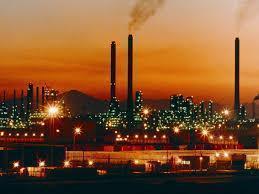You have not yet added any article to your bookmarks!

Join 10k+ people to get notified about new posts, news and tips.
Do not worry we don't spam!

Post by : Ceo Admin
As OPEC+ prepares to discuss a possible increase in oil production for November, the growing divide between Saudi Arabia and Russia underscores the intricate dynamics in the energy sector. With global consumption patterns shifting, particularly in Asia, the major oil producers face challenging decisions.
The Organization of the Petroleum Exporting Countries and its partners (OPEC+) enter a crucial week for negotiations.
Members are weighing the extent of an oil output increase starting November 2025 — a decision with significant potential to sway global fuel prices as the year wraps up.
Sources involved in the negotiations report that Saudi Arabia is advocating for a notable rise of up to 550,000 barrels per day (bpd) to bolster its market position, while Russia favors a more measured increase of around 140,000 bpd, citing worries about the fragile state of global demand.
“The biggest challenge is balancing revenue goals with price stability,” remarked a delegate involved in the discussions. “Raising output too much could lead to another downturn in the market.”
Recently, oil prices have hovered between $82 and $85 a barrel, reflecting a stable yet sensitive situation.
A downturn in industrial activities in China and Europe, along with reduced fuel consumption in Western countries, has forced OPEC+ to proceed cautiously.
Experts warn that a large production increase might push Brent crude prices below $80, especially if global growth takes a hit in the fourth quarter.
After several years of deliberate production cuts, Saudi Arabia aims to regain its market share from before the reductions.
Insiders indicate that Riyadh’s focus includes:
Improving supply ties with Asian refineries, especially in India and China.
Enhancing its competitive edge against U.S. shale producers.
Promoting domestic economic diversification through the Vision 2030 initiative.
Industry analysts believe that the kingdom is striving to increase its clout in global oil markets, signaling optimism regarding price stability even with an uptick in supply.
Facing ongoing sanctions and export challenges, Russia is exercising caution.
Officials warn that an oversupply could threaten fiscal stability and undermine recent price gains.
With production nearing full capacity, Moscow prioritizes market stability over a focus on volume growth.
“Russia’s viewpoint is pragmatic — substantial price drops hurt everyone involved,” explained an energy market expert.
Increasing OPEC+ production could:
Offer temporary relief to importing nations such as India and those in Southeast Asia.
Apply pressure on non-OPEC producers, particularly U.S. shale exporters.
Potentially lead to short-term drops in global crude prices if demand recovery stalls.
Conversely, a moderate increase would:
Keep Brent prices solidly above $85.
Protect producer revenues.
Maintain supply discipline until clearer demand trends emerge.
The next OPEC+ ministerial meeting is slated for Sunday, 1100 GMT, with output decisions expected shortly thereafter.
Most insiders predict a compromise output target of 275,000–300,000 bpd — enough to demonstrate unity while averting price shocks.
Markets across Asia, Europe, and North America are braced for immediate reactions after the announcement, given the heightened sensitivity of crude benchmarks to supply developments.
Asia accounts for nearly 70% of the new global oil demand growth.
Economists note that OPEC+ decisions will swiftly affect Asian economies — influencing inflation, transportation expenses, and overall fiscal health.
“For Asian consumers, every change from OPEC+ resonates — impacting everything from fuel prices to logistics costs,” commented an independent analyst.
The impending decision will challenge the organization’s unity and long-range strategy.
Should Saudi Arabia's expansion initiative prevail, oil markets may initially experience a period of oversupply followed by a likely rebound in 2026.
Alternatively, if Russia’s cautious approach wins out, stability might be restored, though at the cost of growth ambitions.
Regardless of the outcome, OPEC+ continues to wield considerable influence over global energy dynamics, and its upcoming decision could significantly shape market trends in the months to come.










Sri Lanka Ex-Intel Chief Arrested Over Easter Attacks
Former SIS Chief Suresh Sallay arrested by CID in connection with the 2019 Easter Sunday bombings th

Japan Reports Spike in Measles Cases Authorities Issue Alert
Japan confirms 43 measles cases in early 2026, prompting health authorities to warn potential contac

Korea US Clash Over West Sea Drill Communication
Conflicting accounts emerge on prior notice briefing, and apology during Feb 18-19 US air exercise i

Richard Liu launches $690M eco-yacht brand Sea Expandary
JD.com founder Richard Liu invests $690M in Sea Expandary aiming to produce affordable green yachts

China imposes export curbs on 40 Japanese firms over military ties
Beijing restricts dual-use exports to Japanese companies, citing remilitarization concerns, promptin

Malaysia moves to protect Musang King durian amid China impostors
Authorities safeguard Malaysia’s Musang King brand as durians from Thailand and Vietnam are being fa